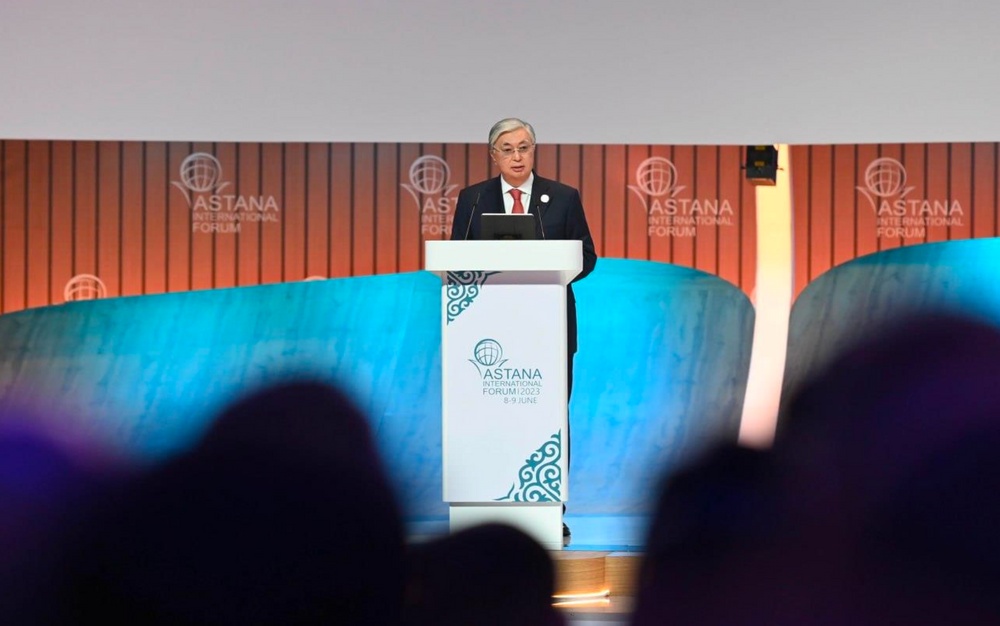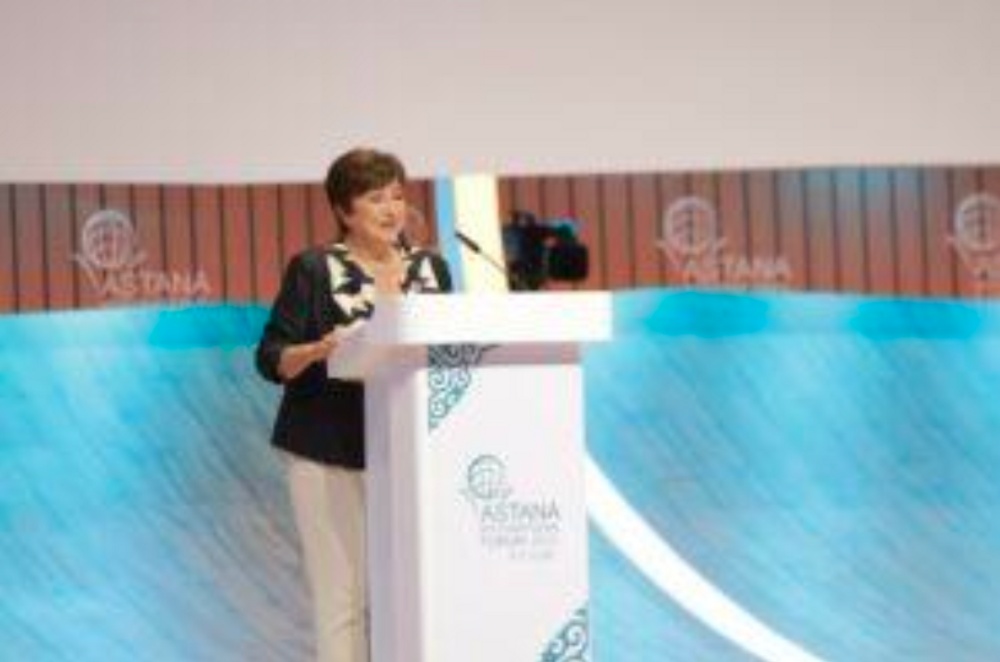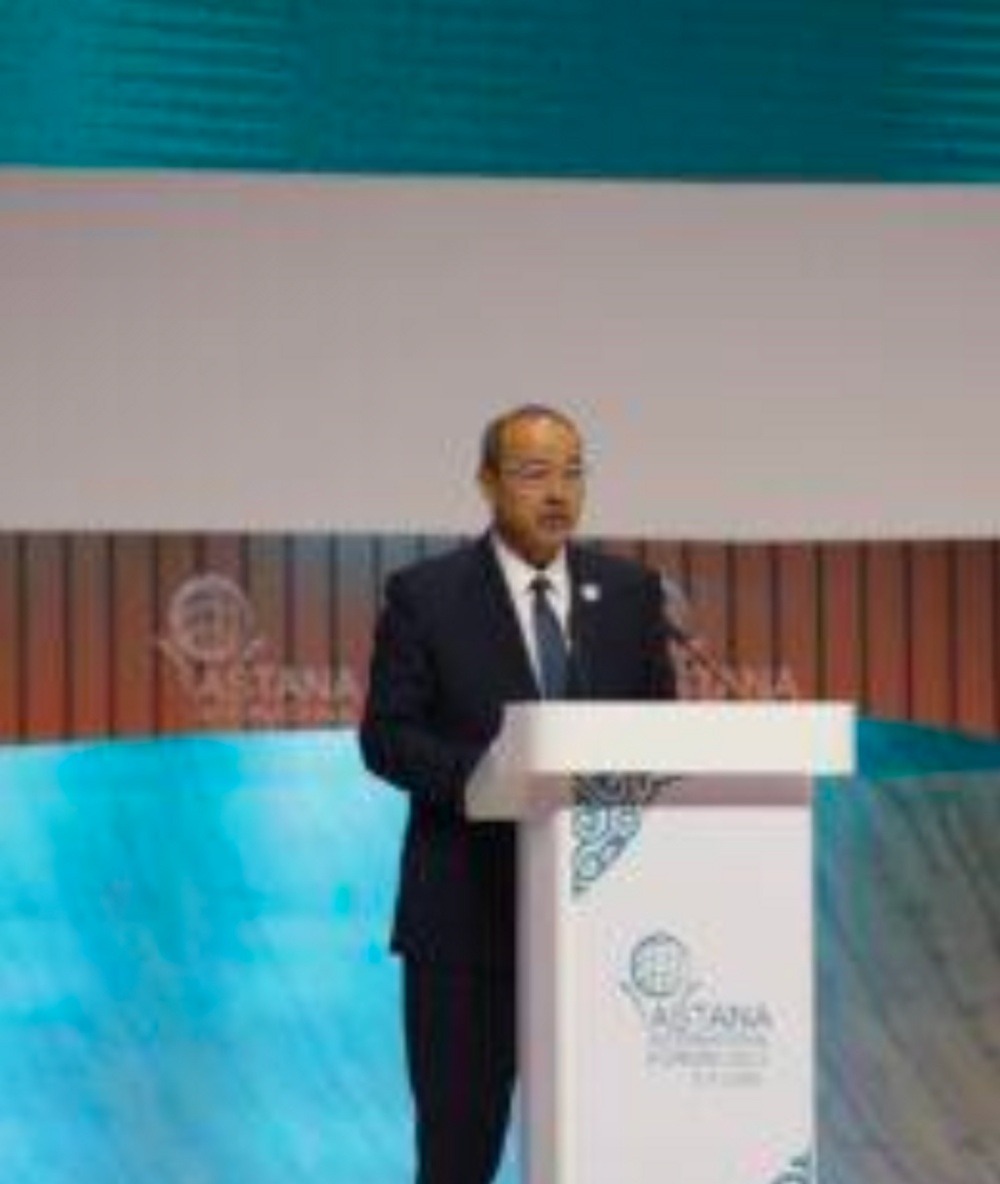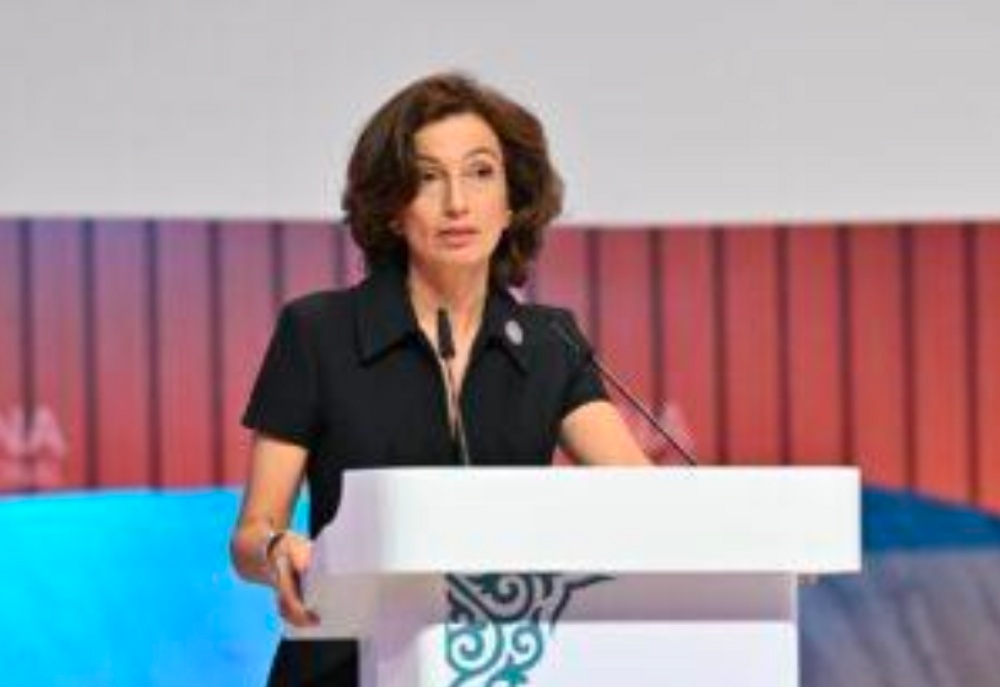Astana International Forum Plenary Session Emphasizes Need for Multilateral Cooperation
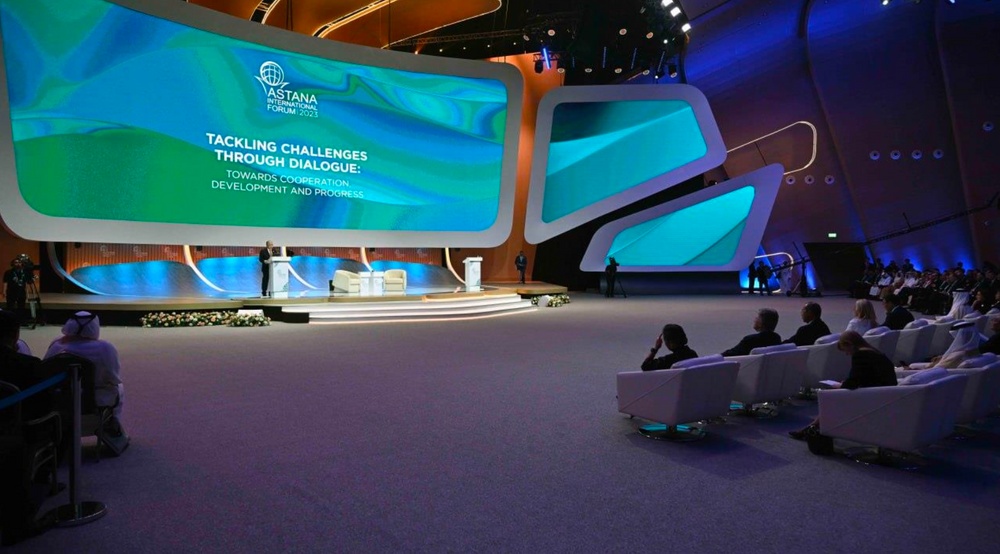 The panel became the global meeting of minds addressing emerging challenges. Photo credit: AIF press service.
The panel became the global meeting of minds addressing emerging challenges. Photo credit: AIF press service.ASTANA – A fundamental shift towards regional and global cooperation is needed to respond to emerging global challenges in the face of climate change, and international security and sustainability issues, participants at the plenary session of the Astana International Forum (AIF) said on June 8.
The flagship event of the AIF was attended by Emir of Qatar Tamim bin Hamad Al Thani, Kyrgyz President Sadyr Japarov, Chairwoman of the Presidency of Bosnia and Herzegovina Željka Cvijanović, Uzbek Prime Minister Abdulla Aripov, as well as executives of international organizations such as the International Monetary Fund (IMF), United Nations Educational, Scientific and Cultural Organization (UNESCO), Organization for Security and Co-operation in Europe (OSCE).
The high-level forum, which is taking place in Astana, sent a strong message to promote diplomacy, multilateralism, and commitment to dialogue in an increasingly polarizing world.
President Kassym-Jomart Tokayev giving his opening remarks at the AIF. Photo credit: akorda.kz
Kazakh President Kassym-Jomart Tokayev’s opening remarks outlined the role of the AIF as a platform to facilitate multilateral cooperation in the spheres of climate, governance and human development. “The key message is that while geopolitical pressures push us apart, we face a clear and strong imperative to come together, to engage, to collaborate, and to align with one another,” said Tokayev. “Multilateralism, centered on the values and principles of the United Nations (UN), is not merely the most effective way to address challenges. It is the only path,” he added.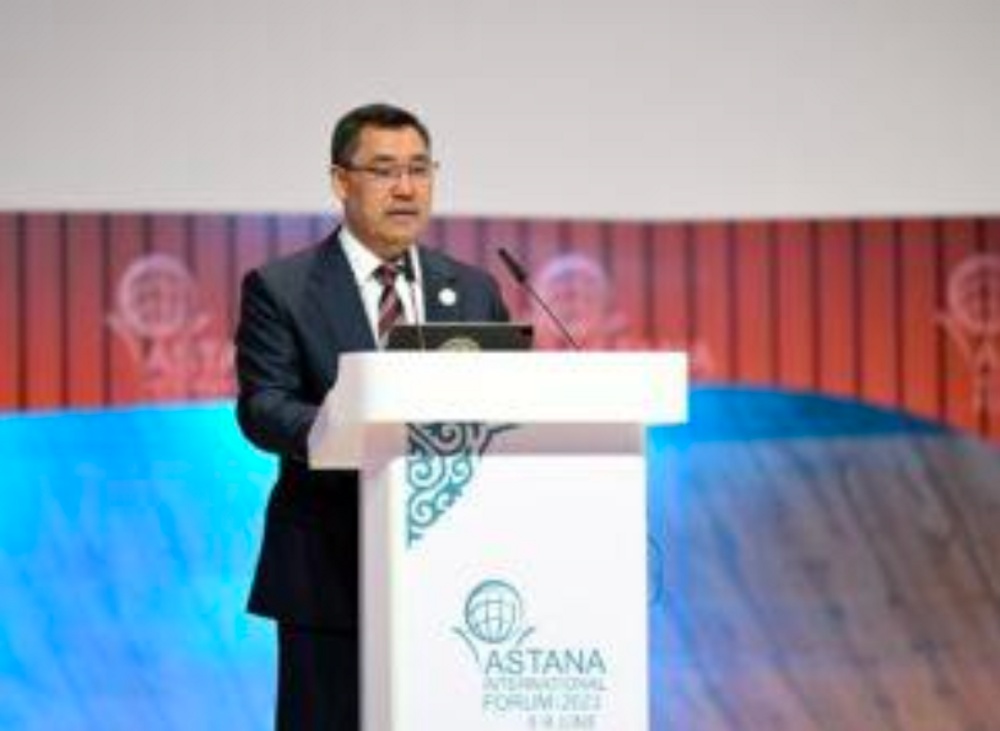
Bosnia and Herzegovina’s Cvijanović emphasized the importance of multilateral diplomacy in her speech. “Functional multilateralism cannot exist without a proper environment. That is a system of multipolar balance of power where no actor or group of actors can impose their own rules and attitudes on others and where the level of usual respect and communication is much higher than is the case nowadays,” she said.
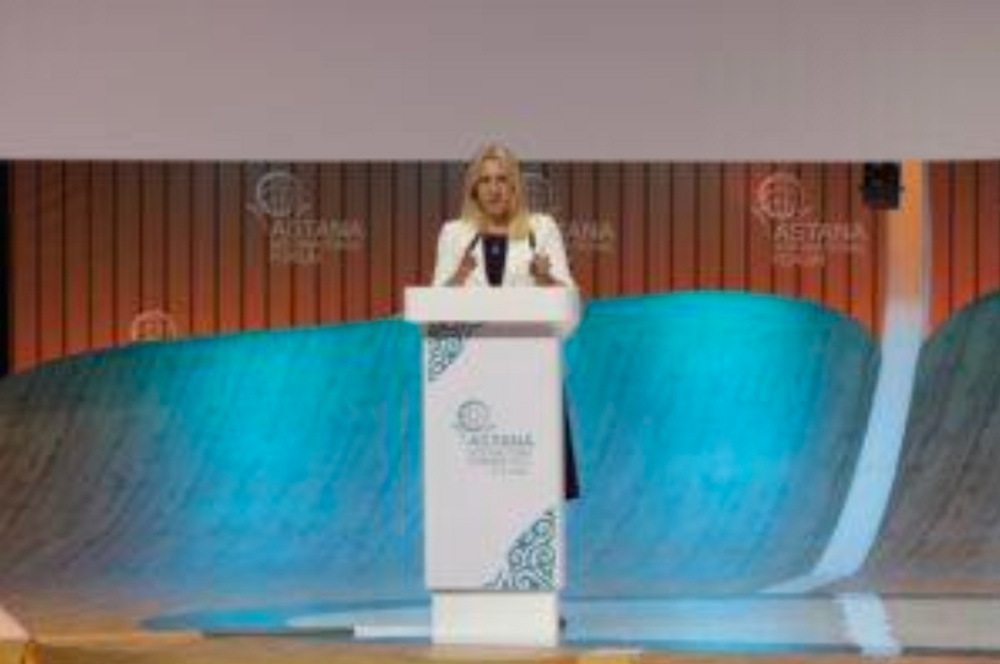
Managing Director of the IMF, Kristalina Georgieva, expressed concern about trade and foreign direct investment restrictions, which have tripled since 2018. “It is up to policymakers to counter that and bring more sanity in economic decision-making,” she said.
The head of the IMF offered four solutions to pragmatic multilateralism that “can’t deliver benefits for the majority of the world’s people.” One is to unite in the fight against climate change, pandemics, debt, and to tackle the issue of artificial intelligence. “No country or region can succeed on its own,” she said. According to Georgieva, trade in a multipolar world would be more integrated within regions and clusters of countries. Nevertheless, it is important to integrate according to the World Trade Organization standards and rules.
She also highlighted the importance of establishing cooperation when it comes to food and medicine. “No restrictions when we talk about the life-saving flow of goods and services,” she said. Georgieva concluded that policymakers should “make sure that we don’t fragment the world financially, including the payment systems, in a way that even if we want to integrate, we would not be able to do so. In other words, [we need to] make sure that cross-border systems can talk with each other, and can interact with each other.”
Taking the stage, Uzbek Prime Minister Aripov commended cooperation in Central Asia. “Thanks to strong political will and actions of heads of state of the region, a completely new atmosphere of mutual trust has been created in Central Asia in recent years. This enables us to address even the most complicated regional issues, exclusively through dialogue and compromise,” he said.
UNESCO Director-General Audrey Azoulay thanked Kazakhstan and President Tokayev for opening the AIF to issues that go beyond economic cooperation. “Because international cooperation and sustainable financing of public goods such as culture, science, and education are absolutely essential to shaping our common future, as well as just and sustainable economies and societies,” she said.
Azoulay also used the opportunity to announce a major project with the five Central Asian countries to map Central Asian glaciers and mountain lakes and to monitor the regional overview of the cryosphere, glaciers, and snow resources. “I believe this example shows that working at the regional and multilateral levels is both relevant because of the nature of the issue. It is essential if we are to serve the general interests of the population,” she said.
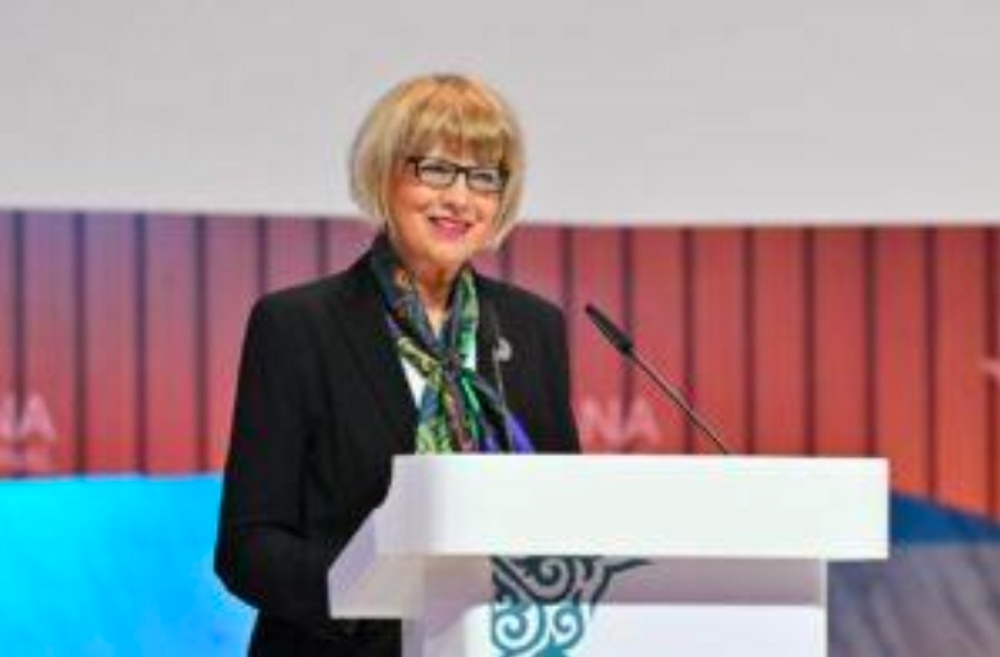
Referring to “unprecedented challenges” in the past two years, Schmid said “these are difficult times indeed for international organizations. Tensions are high, but it is vital to recommit to multilateralism.” “Our work goes beyond dialogue in Vienna. We continue to ensure real benefits every day, making a difference to 1.3 billion people, including in Central Asia. I was in Bishkek and Ashgabat before I arrived here, and I can see it with my own eyes,” she said.
Armida Salsiah Alisjahbana, the UN Under-Secretary-General and Executive Secretary of the Economic and Social Commission for Asia and the Pacific (ESCAP), dedicated part of her speech to warn about the increasing disparity between countries’ development in different regions, particularly Asia.
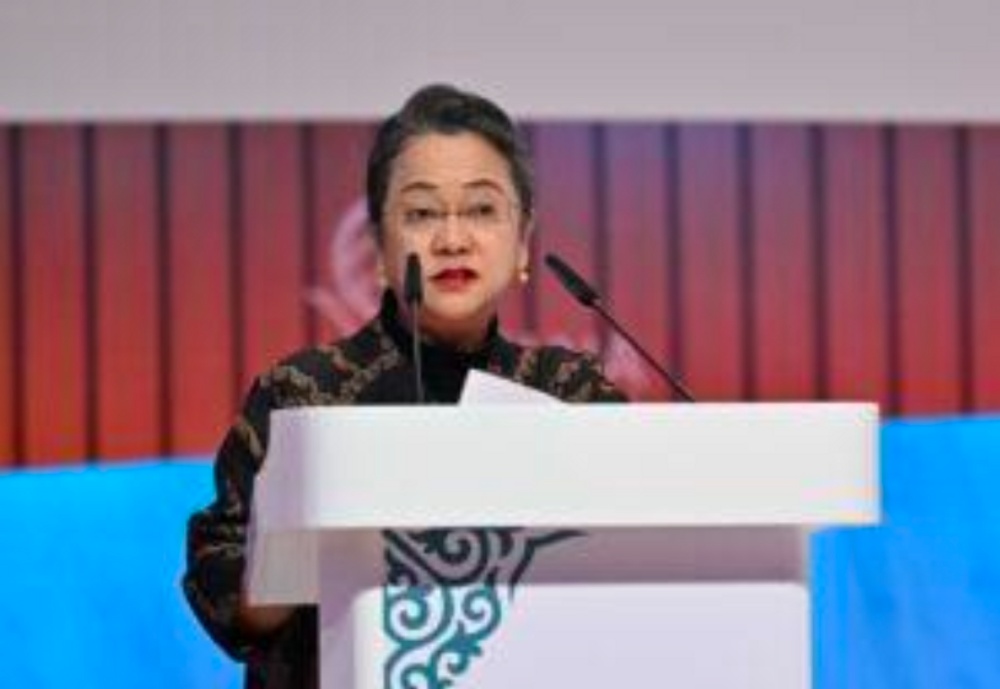
Alisjahbana called for increased cooperation in coping with global challenges. “There are global and regional issues that affect us all. This is especially true in the world where all aspects of our lives are economically, socially, and environmentally intertwined,” she said.
About the Embassy
The Embassy of the Republic of Kazakhstan in the Kingdom of Sweden and in the Kingdom of Denmark was opened on March 8, 2014 by direct decree of the President of the Republic of Kazakhstan with a view to strengthening diplomatic relations. The site is introduced to keep the wide public informed on activity of the diplomatic mission in Sweden, and to provide information support for the citizens of Kazakhstan who live in Sweden and foreigners who are going to visit Kazakhstan as tourists or businessmen.
Contacts
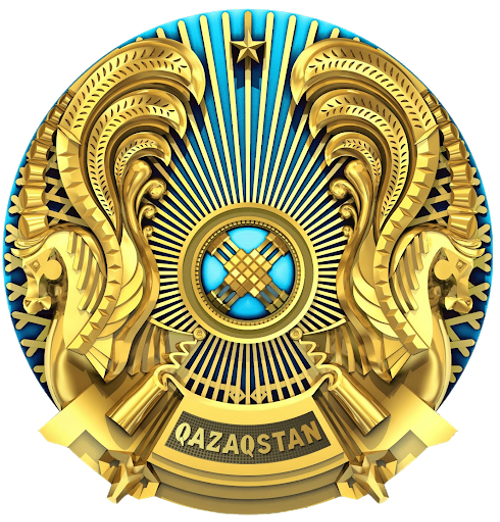
Aibek Yessey
- a.esei@mfa.kz
- +46 76-298 53 99
- +46 (0) 8 700 51 41
